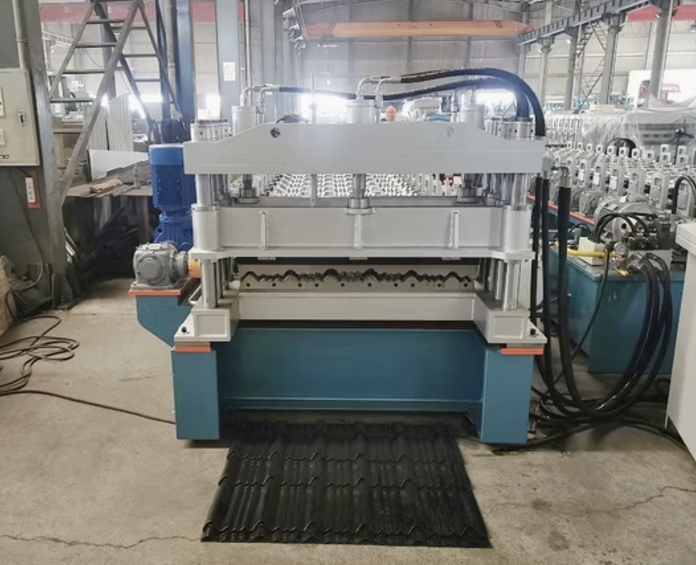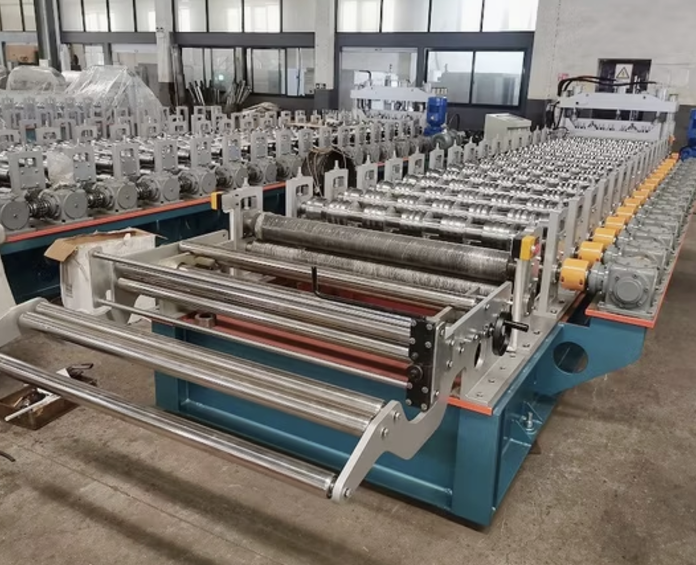To express an interest in this machine please submit the form below.

Not Sure What Machine You Need?
Select Your Profile, We'll Match It
Choose your desired profile drawing, and let Machine Matcher connect you with the best roll forming machine tailored to your needs.
Browse Profiles



A metal roof roll forming machine is a specialized industrial equipment designed to produce various profiles of metal roofing panels used in residential, commercial, and industrial applications. These machines are vital in manufacturing precision-engineered metal roofing systems, ensuring durability, weather resistance, and aesthetic appeal. In the USA, the demand for these machines is high due to the growing construction sector and the preference for sustainable and long-lasting roofing materials.
The machine operates by feeding metal coils into a set of rollers, which progressively shape the metal into the desired profile. The process is automated, efficient, and capable of producing large quantities of roofing panels with consistent quality.
Q1: What types of metal roofing profiles can this machine produce?
A1: The machine can produce profiles such as standing seam panels, corrugated sheets, snap-lock panels, ribbed panels, and custom profiles depending on the tooling setup.
Q2: How much does a metal roof roll forming machine cost in the USA?
A2: The price typically ranges from $50,000 to $150,000, depending on the machine's specifications, speed, and additional features.
Q3: Is it possible to use different materials like aluminum or copper?
A3: Yes, the machine is compatible with a variety of materials, including galvanized steel, pre-painted steel, aluminum, and copper.
Q4: How do I maintain the machine to ensure long-term performance?
A4: Regularly clean and lubricate the rollers, check and replace worn parts, and ensure proper alignment of the forming stations. Periodic professional servicing is also recommended.
Q5: Can the machine be customized for unique roofing designs?
A5: Yes, many manufacturers offer customization options to meet specific design and profile requirements.
Q6: What power supply is needed to operate this machine?
A6: Most machines require a three-phase power supply, either 220V or 380V, depending on the model.
Q7: How long does it take to set up the machine?
A7: Initial setup and installation can take 1–2 days, including alignment and testing. Subsequent adjustments for different profiles are quicker, typically taking a few hours.
Q8: Are there any certifications required for operating this machine in the USA?
A8: While certifications are not mandatory, compliance with OSHA safety standards and relevant local regulations is essential.
Q9: Can I integrate automation with this machine?
A9: Yes, advanced models include PLC control systems with automation features, and additional components like stackers and coil handling systems can be added.
Q10: What is the warranty on these machines?
A10: Most manufacturers provide a 1–2 year warranty, covering parts and technical support.
Copyright 2026 © Machine Matcher.